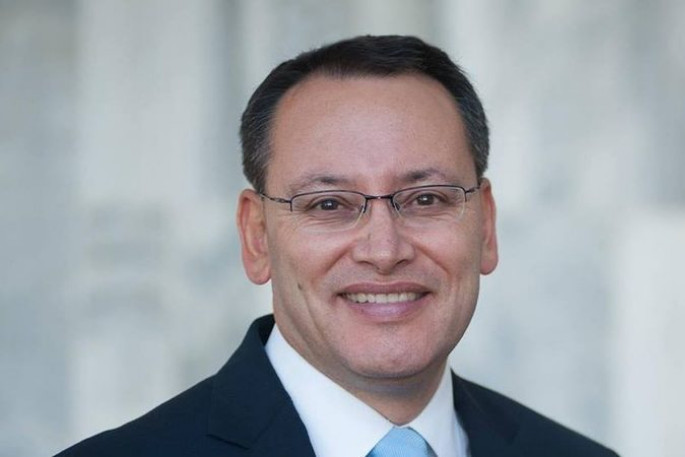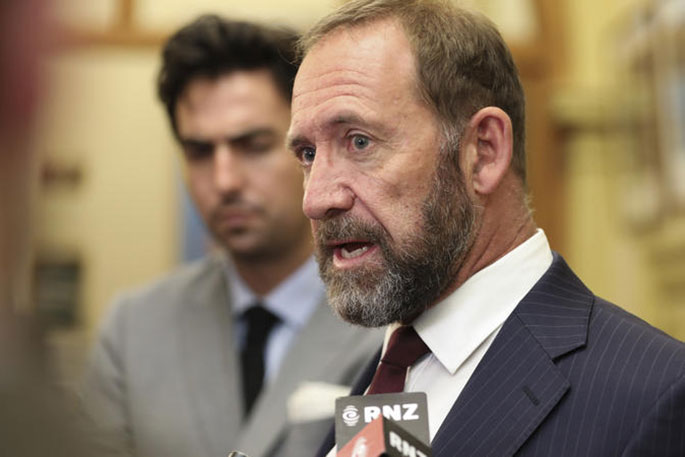A $5 million government unit set up to investigate halving the number of district health boards comes at the same time some boards are appointing younger people as 'observers” to learn about DHB governance.
The unit, with 25 staff, is a waste of money according to National deputy leader and health spokesperson Dr Shane Reti, who wants the government to ditch the 'health sector experiment” and focus the funding toward COVID-19 vaccinations or vulnerable patients such as those with rare disorders.
But Health Minister Andrew Little says money being spent on the transition unit will ensure all New Zealanders have good quality care.
Reti says reducing the number of DHBs from 20 to between eight and 12 through amalgamation, as recommended in the Health and Disability System Review last year, will take away the voice of patients in small towns and regions.
In his ministerial answers last month, Little confirmed the Health and Disability Transition Unit had been set up with an initial budget of $5m.
The 25 staff were either seconded departmental employees, or specialist contractors.
Last year's health system review recommended reducing the number of DHBs within five years, appointing rather than electing board members, and creating a new entity to focus on the operational and financial side of DHBs, along with a standalone Māori Health Authority.
The two-year review cost taxpayers $7.8m.
 Shane Reti.
Shane Reti.
Reti told Local Democracy Reporting another $5m in administration costs for the next phase, expected to take another two years, would not directly benefit patients.
'Rather than spending millions on the unnecessary amalgamation of DHBs, this money would be much better spent in areas that will actually help New Zealanders.”
He says $5m would cover the cost of vaccinating New Zealand's 10,000 managed isolation and quarantine border workers, and is the same amount National had set aside each year for four years to fund Pharmac medicines for children and adults with rare disorders.
At the end of the four years, the fund did not continue under the Labour government, he says.
Rare Disorders New Zealand chief executive Lisa Foster says planning for the future is important and necessary.
'But when it comes to looking at what we could do with that money, obviously that would pay for life-changing medicine so that is a challenge.”
Reti predicts smaller DHBs such as those in Wairarapa, Tairāwhiti and Northland will disappear in any mergers.
'We won't support a reduction of DHBs that removes the local voice and doesn't deliver a better model.”
But Little says all New Zealanders will benefit from the money being spent on the transition unit.
"There is a clear case for change to improve access to health care for more New Zealanders.
"There is always a cost to change and we have met that cost separately to the health system.
"The real cost we face is the catch-up after nine years of serious under-funding by the previous National government.”
Reti's concerns came as the Auckland DHB yesterday agreed to appoint three observers to its board under a new DHB governance programme known as 'Seat at the Table”.
The scheme, funded by the Ministry of Health, is aimed at younger people with a particular focus on Māori and Pacific candidates and candidates with disabilities.
It allows for two observers to be appointed to a DHB where they will have speaking rights but not voting rights.
The observers will learn about health governance and be paid $250 per meeting, capped at 10 meetings per year.
Each observer will have a mentor from within the board and the total cost allocated to each observer is $4000, including $500 each for travel, catering and 'diligent access”.
The ministry will fund two observers in each DHB and any extra would be funded by the DHB, with the programme already implemented at Waitematā and Counties Manukau DHBs.
Other DHBs interested in the initiative are Bay of Plenty, Taranaki and Hawke's Bay.
If each of the 20 DHBs appointed two observers the cost to taxpayers would be up to $160,000 per year.
Little says the Seat at the Table health governance programme is a good idea.
"We need to do everything we can to build skills in the health sector including in governance.
"The most important thing is that we have health services that are responsive to community needs.
"It is not necessarily true that this is achieved through DHBs."
Auckland DHB deputy chairman Tama Davis says the board is delighted to endorse the programme.
"The programme will grow our future leaders by providing opportunities for young people from some of our diverse communities to develop governance skills, while also benefiting the DHB with their own unique perspectives and experiences."




1 comment
Stating the obvious
Posted on 28-01-2021 21:08 | By Johnney
Why spend $5M on highly paid consultants just to tell us what we already know. Complete waste of money.
Leave a Comment
You must be logged in to make a comment.